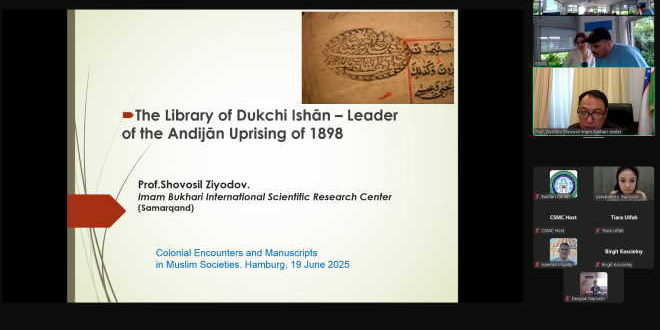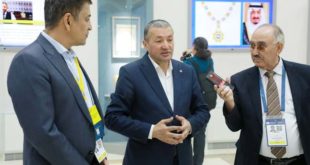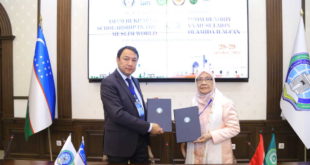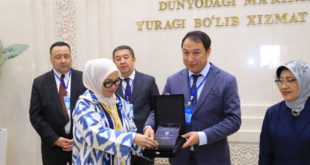An international academic seminar titled “Colonial Encounters and Manuscript Heritage in Muslim Societies” was held at the initiative of the Advanced Research Cluster for Written Artefacts, operating under the Centre for the Study of Manuscript Cultures (CSMC) in Hamburg, Germany.
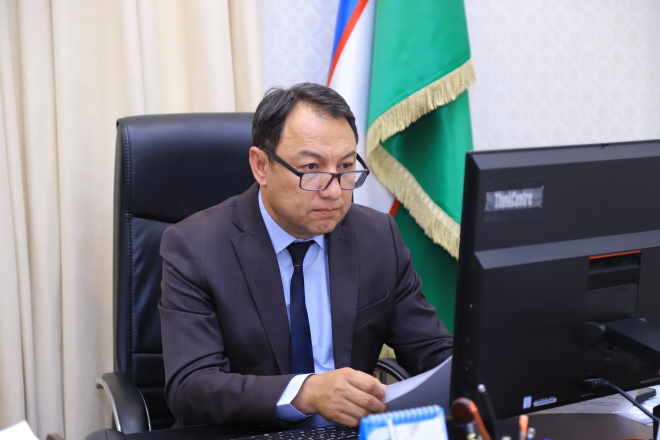
The Director of the Imam Bukhari International Scientific Research Center, Doctor of Historical Sciences, Professor Shovosil Ziyodov, participated in the event online and delivered a lecture titled “The Library of Dukchi Eshon – Leader of the Andijan Uprising of 1898.”
In his presentation, the professor spoke about the history of the formation of the waqf library located in Dukchi Eshon’s khanaqah (spiritual retreat), the manuscripts and works preserved there, and their fate. He emphasized that this library is not only a center of religious and educational life but also a valuable source for gaining deeper insight into Dukchi Eshon’s ideological views.
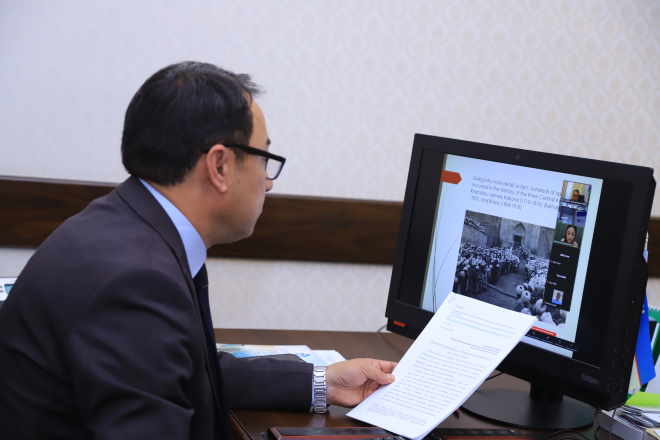
“This library is a reflection of Dukchi Eshon’s profound love for knowledge and enlightenment. It serves as an invaluable resource for studying his worldview, scholarly legacy, and influence within society,” noted Professor Ziyodov.
During the lecture, detailed information was provided about the 194 manuscripts housed in the library, their contents related to science, theology, philosophy, and Sufism, as well as the historical timeline of how these rare works were taken to Russia and later returned to Uzbekistan’s Institute of Oriental Studies under the Academy of Sciences.
It was highlighted that the catalog of 231 manuscripts compiled in 1912 by the renowned Orientalist V. Bartold, which remains unpublished to this day, stands as one of the key documents affirming the richness of Dukchi Eshon’s library.
Additionally, the research revealed 54 manuscripts and 17 lithographed books marked with seals belonging to the library, bearing inscriptions such as “Waqf of the Khanaqah Khalifa Dukchi” and “Duksoz Ali Sobiriy.” These seals confirm the works were preserved as waqf property, demonstrating the library’s structured organization and purposeful direction.
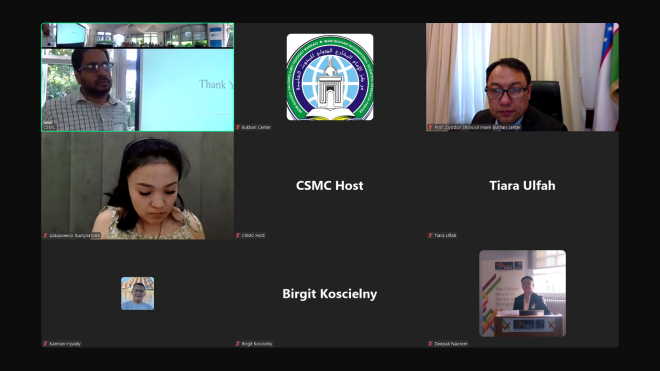
The speaker concluded with the following statement:
“The Dukchi Eshon Library is not only a unique historical relic but also a profound spiritual legacy. Through its books, we see that Eshon’s interests extended beyond religious sciences to worldly knowledge as well, illustrating his pursuit of perfection and efforts to spread the light of enlightenment.”
The lecture attracted significant interest from the international scholarly community and was recognized as an important avenue for future research.
 Imom Buxoriy xalqaro ilmiy-tadqiqot markazi bukhari.uz
Imom Buxoriy xalqaro ilmiy-tadqiqot markazi bukhari.uz







